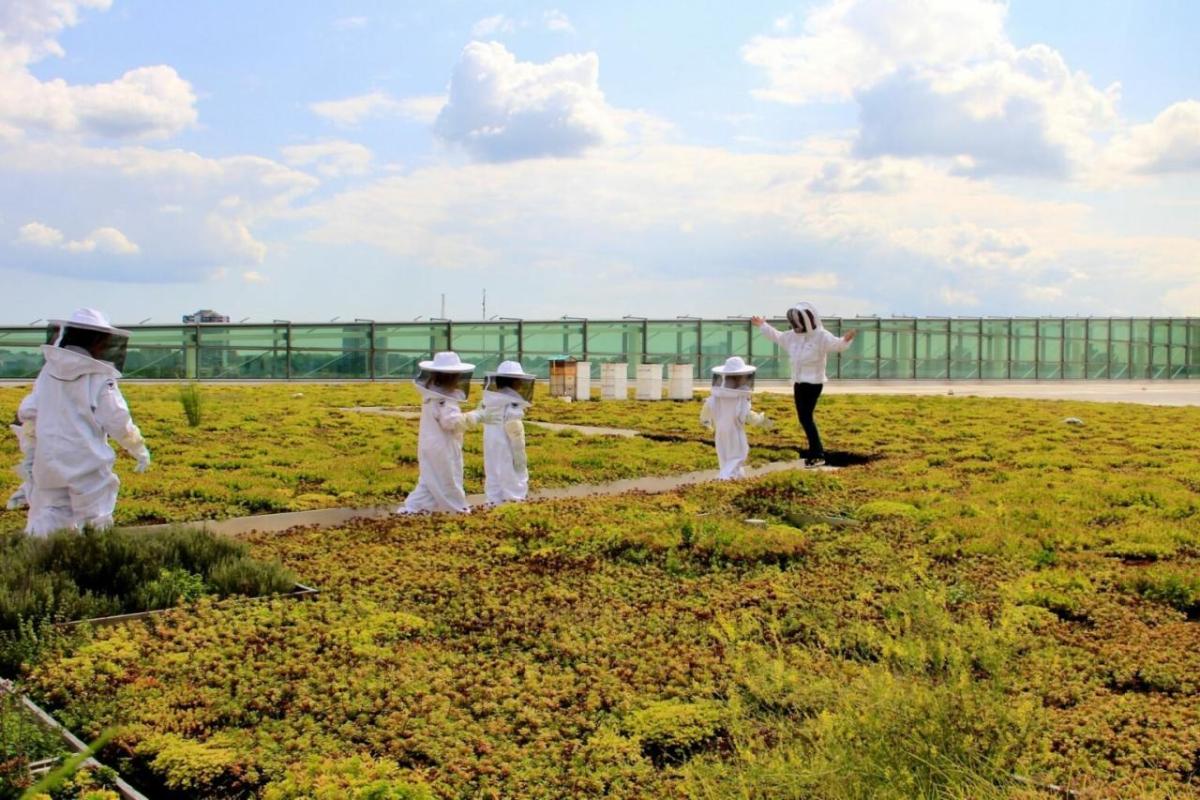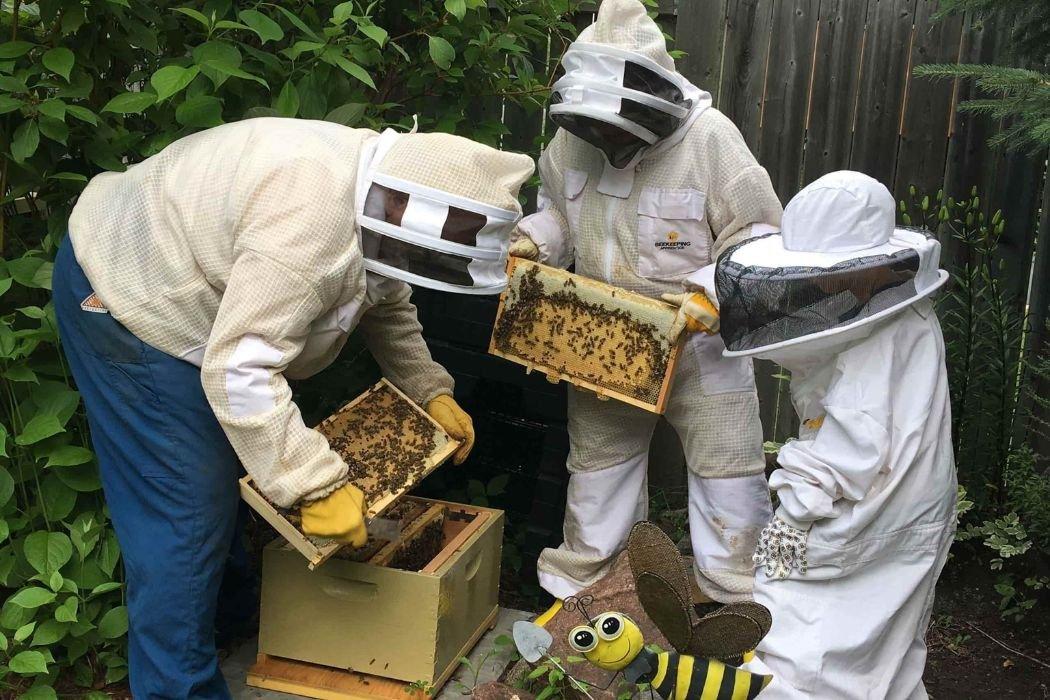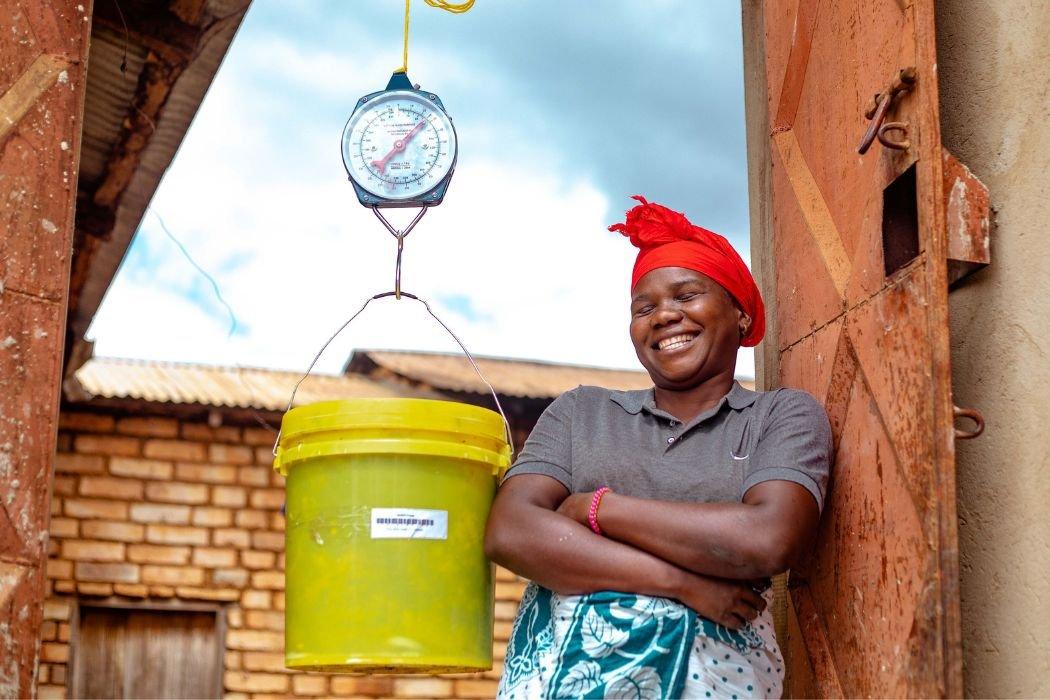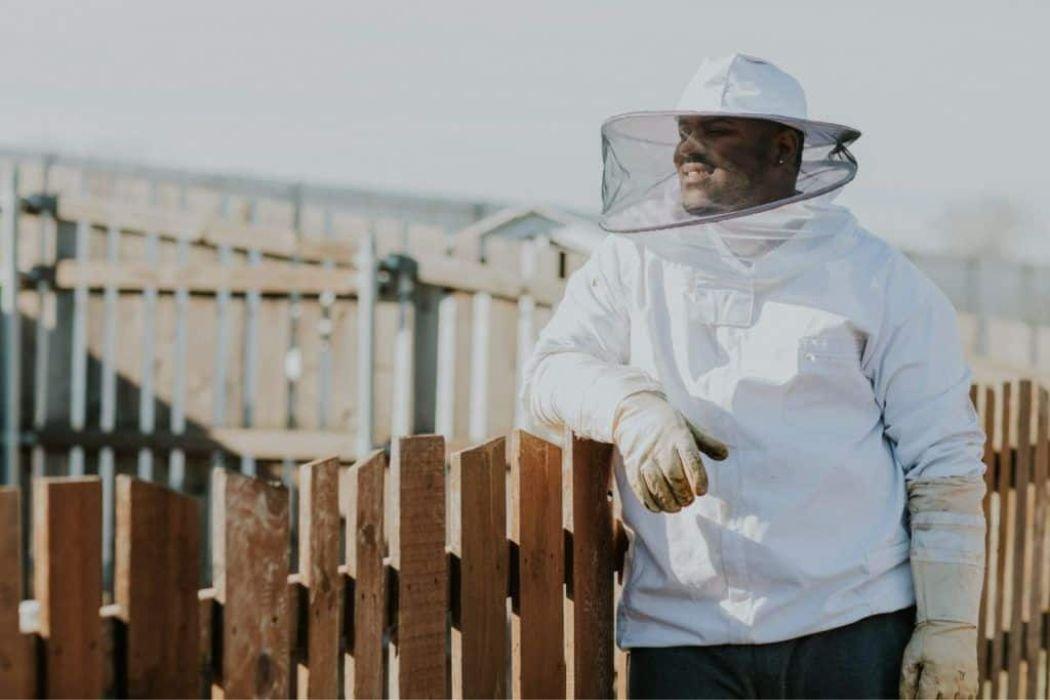The Power of Pollinators
June is National Pollinator Month, and the perfect time to spotlight the significant impact of pollinators, especially honey bees, on our environment, health and livelihoods. One in three bites of food is made possible by pollinators, which makes honey bees, birds, bats, moths, butterflies and other insects crucially important to the future of healthy and diverse food systems, as well as vibrant ecosystems. Their potential extends even further offering significant income-generating opportunities around the world too.
Whole Foods Market Foundation’s three projects — Whole Kids, Whole Cities and Whole Planet — are honored to support local and global partners with ongoing investments in pollinator health, conservation, education and honey production as a source of additional income for smallholder farmers. Here is a snapshot of what’s happening in three different countries.
Whole Kids
Whole Kids understands that children are crucial to the future of pollinators. In partnership with The Bee Cause Project, our Bee Grant program allows for schools and non-profit organizations to receive support for educational beehives, so students can observe bees up close, learn about their vital role, and help protect them. Whole Kids and The Bee Cause Project have awarded 960 Bee Grants since 2014.
Mother Teresa Early Childhood Education Center in Lloydminster, Alberta, Canada is a three-time grantee that created Bee Inquiries, a six-session program to help enhance students’ understanding of honey bees and their role in the food system. Programming covers bee terminology, types of bees and their behaviors, different parts of the hive, pollination and more. When the school was awarded its first Bee Grant in 2019, it used the funds to purchase an extractor and boost its curriculum and learning centers. It later received Renewal Grants in 2021 and 2023 to continue advancing educational programming.
Whole Planet
Around the globe, honey production is propelling the livelihoods of beekeeping families and also helping smallholder farmers supplement their farming incomes and build more diverse, tenable farms. Whole Planet recently awarded no-interest loans to amplify the efforts of two honey production companies in Western Tanzania working to create opportunities and prosperity for beekeepers and small-scale farmers in rural communities.
Swahili Honey aggregates and sells high quality honey and beeswax produced by traditional beekeepers and smallholder farmers. It provides its partners with access to free beekeeping training, advanced beekeeping equipment loans, extension services and a guaranteed market for the honey they produce. The $300,000 no-interest loan from Whole Planet will be used to help scale Swahili Honey’s beehive loans to an estimated 898 local beekeepers in Southern Highlands regions in Tanzania.
“At Swahili Honey, we believe that empowering local beekeepers is crucial for the future of sustainable beekeeping. With support from partners like Whole Planet, we can expand our reach and provide essential resources and opportunities to our local beekeepers in Tanzania. Together, we are creating a sweeter future.” - Joseph Kadendula, CEO, Swahili Honey
Upendo Honey is an organic honey producer that works with traditional, small-scale beekeepers in remote forests and game reserves in Western Tanzania to bring high quality organic honey to customers around the world. It provides training, technical support and aggregating honey harvest at a guaranteed, above-market price. With the $234,000 no-interest loan from Whole Planet, Upendo Honey is aiming to scale their pre-harvest financing program to an estimated 5,800 small-scale beekeepers.
“The support of Whole Planet is instrumental in our efforts to help traditional beekeepers earn more money and grow their businesses. By helping people gain good jobs and a good income from native forests in Tanzania, we can slow deforestation and protect valuable biodiversity.” - Upendo Honey Team
Whole Cities
As Whole Cities’ community partners grow strong and equitable food systems, several address pollinators for a good reason — more than 100 crops grown in the U.S. rely on them.
Here are a few examples of how Whole Cities’ partners around the U.S. are supporting pollinator health, conservation and education:
- Bonton Farms (Dallas, TX) — Bee hives
- Medway Community Farm (Medway, MA) —Pollinator education opportunities for elementary students
- Ohio Ecological Food and Farm Association (Columbus, OH) — Beekeeping workshops
- Queens County Farm (Queens, NY) — Bee hives
- Schenectady Inner City Ministry (Schenectady, NY) — Native pollinator plants and bee hives
- Twin Sisters Mobile Market (Bellingham, WA) — Local honey sales
- University Place Community Garden (University Place, WA) — Pollinator garden
As pollinators continue to face threats including habitat loss, disease, pollution and climate change, we hope community-driven approaches to pollinator conservation, education and profitable businesses like the programs created by our partners can help raise awareness, inspire environmental stewardship and spark change.






